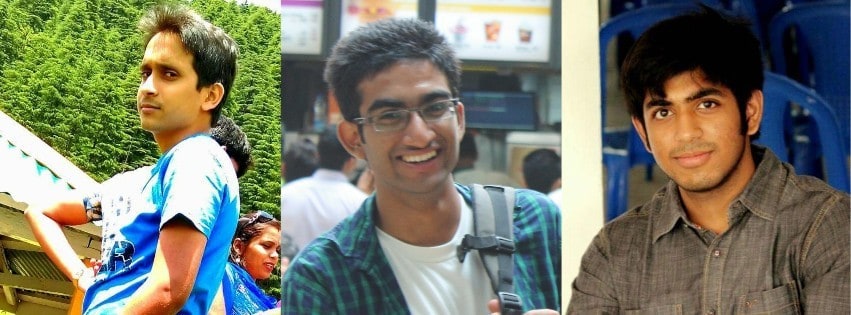“I would always get into fights with my mother, about having separate bins for waste segregation, switching off lights and all those things.” Prateek Agarwal has been passionate about the environment for as long as he can remember. That passion has manifested itself in his current venture.
Together with Subham Agarwala and Siddhant Khetan, Prateek co-founded “Green Strips,” an initiative which aims to replace plastic bags with paper bags, subsidised through advertisements placed on the latter.
The twenty-year old likes designing and travelling, and pines for the Delhi food he left behind when he went to study in Kolkata. But food is not the only factor that changed when Prateek moved.
He recounts, “I did a lot of social work in Delhi. I was a part of NSS, the National Service Scheme, in which I did a lot of good things. But in Presidency University I didn’t get much scope for any of those things. It was just ‘study, study, study’. So I decided to start something on my own. And my roommate was similar, so we started to think about what we could do with our skills.”
Their brainstorming resulted in a solution that managed to combine Prateek’s two main passions. “From the ninth grade, all I wanted to do in life was go into advertising. I liked it because it’s creative. Only because of that. But after the 12th, I changed my mind. I began to see it as manufacturing demand for products which are not all necessary. After that, my second concern was waste management.”
Interestingly, with their venture, Prateek and his team have found a way to incorporate both of these elements. “We came up with the idea of “Green Strips”, an eco-friendly initiative to replace plastic bags with newspaper bags, and making it more affordable by subsidising them with advertisements of local businesses.”
Once the idea was conceived, “we Googled it, to see if anything like this already exists. We found a similar venture going on in Pune for the last seven years, called Eco Ad. We messaged its founder on Whatsapp, telling him that we wanted to start a similar enterprise. Surprisingly he was ready to help us.”
With this support, Prateek and his friend set out to begin manufacturing and reaching out to advertisers. They also wished to use their venture to provide employment to underprivileged women in the area.
So far, it has proved to be more difficult than expected, “The manufacturing plan that we decided on didn’t work out quite well, so we are looking for a new manufacturing unit now before starting to pitch to advertisers. We plan to fix that very soon. And then we hope that in another two or three months, we will be producing 10,000 bags a month.”
To date, they have delivered one order, and have three advertisers on board, “They are ready whenever we begin with our bags,”says Prateek.
The team has also managed to secure space to work in a factory. “That helped us very much, and we will be giving him a lot of work of printing because of it. The factory does printing, so it works out to have mutual benefit for both.”
However, some obstacles remain. Prateek points out, “Time is a problem, because my college asks for 75% attendance. So I just keep 75% and devote the rest of my time to the venture, but if I had more time things would move faster.”
Prateek admits that people don’t always take them seriously. When we approach women and ask if they would work for us, it’s obviously hard for them to believe a bunch of kids offering employment, so they don’t take us seriously. Also while some advertisers do appreciate us, some others want to know why we are wasting our time on this venture when we should be studying. They think that this is the time that we are in college and should be focused on academics, not social work.”
Despite the challenges and mindset barriers they encounter, the team is determined to continue their work. In future, the “Green Strips” team plans to add five shops every month to their distribution network, with a minimum of 300 shops served five years from now. This would prevent a massive 3 lakh plastic bags from polluting the earth!
In addition, the team hopes to provide additional income to over 100 women and eventually expand their product range to include more eco-friendly, recycled and up-cycled products. The main insight Prateek has gained from this enterprise is that we should all learn to “ask big questions.”
[This article is the second in our series on the Youth Venture Programme, a global initiative led by Ashoka which recognises many such inspiring teenagers across the world. The Youth Venture Programme works to empower teenagers with passion, commitment and great ideas.]

A Nice appreciable initiative by Green Strips to ban plastic bags.